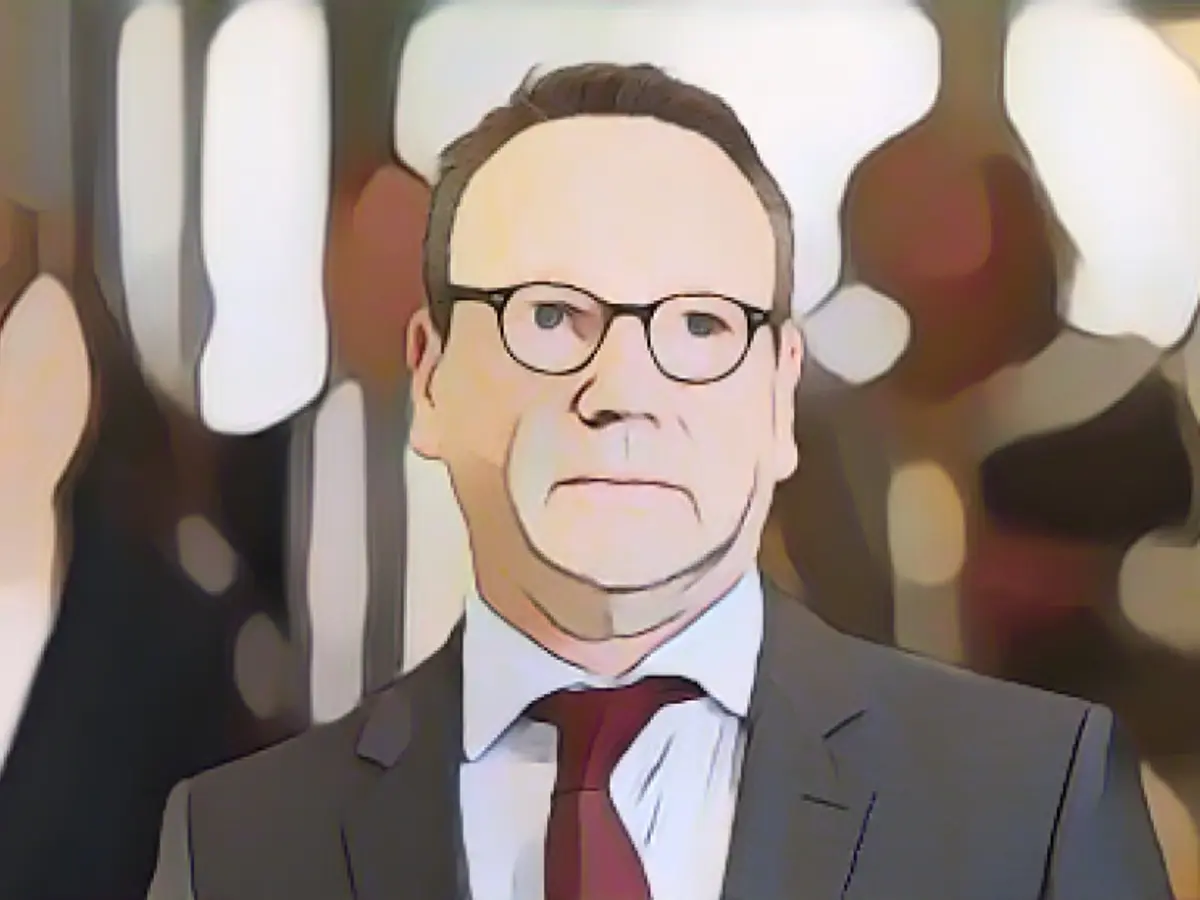Title: Why Isn't North Rhine-Westphalia Aggressively Targeting Organized Crime's Finances?
As we kick off the new year, the state government faced criticism from the legal affairs committee, led by the FDP, for its ineffectiveness in disrupting the profits generated by organized crime. Their focus was on the Green Party's Justice Minister, Benjamin Limbach, who they urged to take decisive action.

These criticisms followed the release of the 2022 clan crime situation report, which revealed a significant surge in criminal offenses committed by clan members. In total, they were responsible for 6,573 offenses, marking an increase of 1,111 from the previous year. Despite this worrying trend, only 24 assets were seized, totaling an additional 2.5 million euros.
The FDP criticized this figure as "laughably low," given the substantial profits generated by organized crime's illicit activities. Werner Pfeil, the FDP's legal policy spokesperson, suggested that Ministers Limbach and Herbert Reul (CDU), must deliver tangible results or face criticism for their inability to combat organized crime effectively.

Addressing the Organized Crime Boom
The state government defended itself by asserting that not all offenses are suitable for asset confiscation and that each case must be fully and impartially examined by the courts before any decision is made. However, the FDP retorted by pointing out the numerous "suitable" offenses, such as 981 property and counterfeiting crimes, 958 thefts, and 631 offenses against secondary laws.
The concern remains that, despite a significant number of criminal offenses, only 24 assets were confiscated. The question of whether resources are being directed effectively towards combating organized crime arises.
Asset Recovery: A Crucial Piece of the Puzzle
The proven success of investigations targeting high-value assets stolen through criminal activities, often resulting in extravagant lifestyles for the perpetrators, highlights their importance. Overlooking these opportunities risks allowing organized crime to thrive rather than be dismantled.
Resilience is required from law enforcement agencies to remain steadfast in their objectives. Making asset recovery a priority is crucial in dismantling the financial backbone of organized crime and reducing their capacity for malicious activities, ultimately improving public security.
Future Measures
Regardless of the state government's arguments, significant changes must be made to improve asset recovery efforts. This includes:
- Strategic Information Sharing: Law enforcement agencies must establish a reliable flow of information beyond traditional borders.
- Expert Training: Officers require specialized skills and knowledge to detect and dismantle organized crime, including financial analysis and money laundering techniques.
- Collaborative Partnerships: Officials should work with private entities, such as banks and businesses, to harness their resources and expertise in combating organized crime.
These initial steps will encourage proactive action and foster a more secure North Rhine-Westphalia.
Departing Thoughts
Engaging with the complexity of organized crime's socio-cultural dimensions is challenging. However, several effective strategies can be adopted, drawing on international best practices and legal frameworks, to improve asset recovery efforts in North Rhine-Westphalia:
- Clear Legal Frameworks: Establish clear, transparent, and consistent laws on asset confiscation, with judicial oversight and appeals mechanisms.
- Strategic Reinvestment: Direct confiscated assets towards sectors that drive long-term economic stability, such as education, healthcare, and infrastructure.
- Efficient Asset Management: Create specialized units to manage confiscated assets effectively.
- International Cooperation: Collaborate with international institutions to reach beyond local borders and ensure a wider impact.
- Public Transparency: Report on the outcomes of asset confiscation to build trust and demonstrate a commitment to the rule of law.
- Asset Forfeiture Programs: Implement asset forfeiture programs that benefit victims and law enforcement agencies.
- Training and Coordination: Equip prosecutors and law enforcement personnel with the necessary legal and policy assistance.
- Collaboration with Financial Regulators: Strengthen partnerships with financial regulatory bodies to optimize asset recovery efforts.
- Data Sharing and Intelligence: Facilitate information exchange and intelligence gathering among law enforcement agencies.
- Community Engagement: Engage communities to encourage reporting and foster trust in law enforcement.
Implementing these strategies can contribute to a more stable and secure environment in North Rhine-Westphalia by dismantling organized crime's financial backbone.





